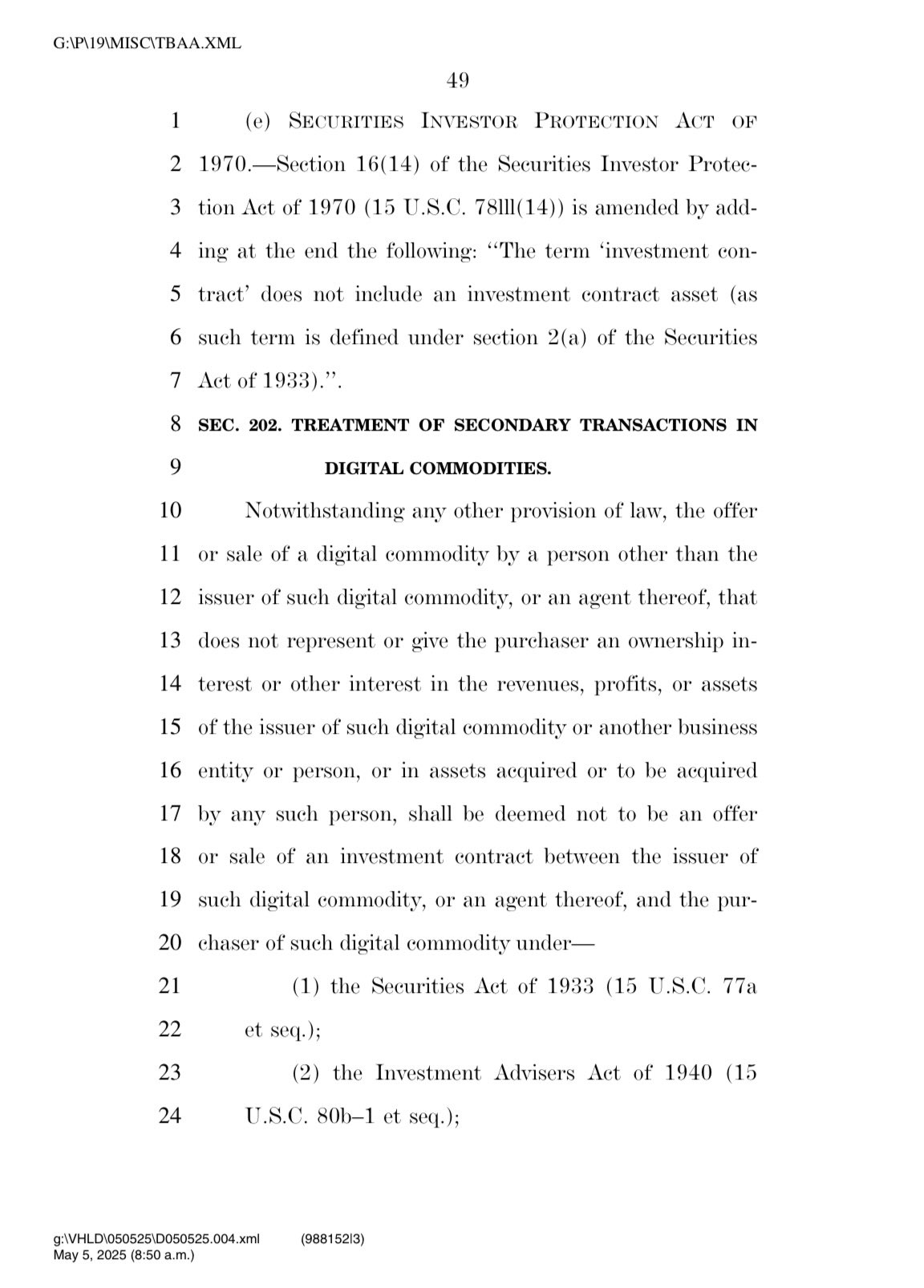House Committee Drops Crypto Regulation Bombshell – VanEck’s Sigel Calls It ’A Solid Start’
Washington finally takes a swing at crypto legislation—and Wall Street’s already placing bets. The House Committee’s newly unveiled bill gets cautious praise from VanEck’s digital asset strategist, though skeptics note it’ll take more than paperwork to tame this Wild West market.
Key takeaways:
- Bipartisan framework aims to clarify crypto’s regulatory gray zone
- Industry insiders cautiously optimistic (read: relieved it’s not an outright ban)
- The usual suspects—lobbyists, lawyers, and late-to-the-game politicians—now scrambling for seats at the table
One thing’s certain: bankers will still find a way to charge you 2% for ’crypto custody’ while doing absolutely nothing to earn it.

Source: House Committee on Agriculture (Excerpt of the discussion draft)
A ‘solid start’ for US crypto regulation?
For his part, Matthew Sigel, VanEck’s head of digital research, praised the draft as an ‘upgrade from the FIT21’ and a solid start.

Source: X
Notably, the draft also defines stablecoin as non-securities and exempts non-custodial DeFi protocols.
Nevertheless, the DeFi exemption doesn’t limit the regulators’ ability to enforce laws against fraud, false reporting, or market manipulation.

Source: House Committee
This is the second attempt by the U.S. government to craft a crypto market structure bill after FIT21 (Financial Innovation and Technology for the 21st Century Act).
In May 2024, the FIT21 bill was passed with strong bipartisan support in the House of Representatives. But the U.S. Senate hasn’t signed it off yet as of the time of writing.
The bill promised consumer protection and national security.
For his part, Justin Slaughter, VP of regulatory affairs at Paradigm, said the new crypto market structure draft will make the CFTC (Commodities and Futures Trading Commission) the dominant regulator in the space.
“This bill again would make the CFTC the dominant crypto regulator, but still gives the SEC jurisdiction until a network establishes decentralization.”
That said, the next step for the draft will be getting feedback from stakeholders before a formal introduction in the House.
After that, the House committee will review it and push it to the floor for a vote if approved. The Senate vote and the presidential action will come later, before the bill becomes a law.
So, there could be a lot of changes before then.
Take a Survey: Chance to Win $500 USDT

